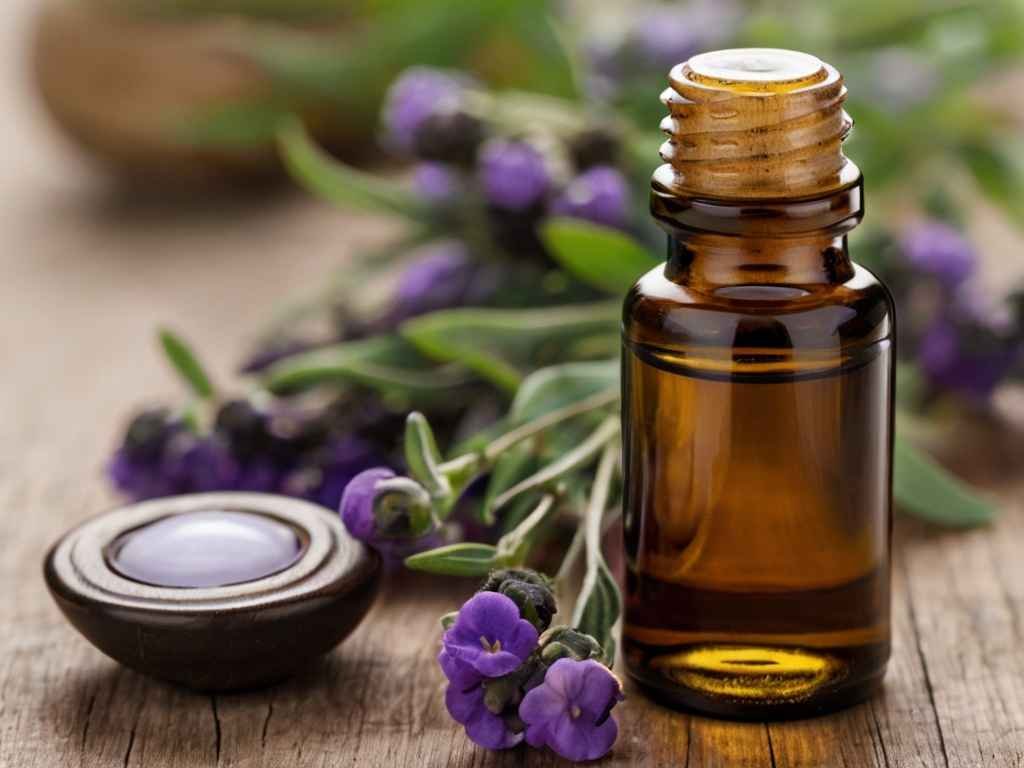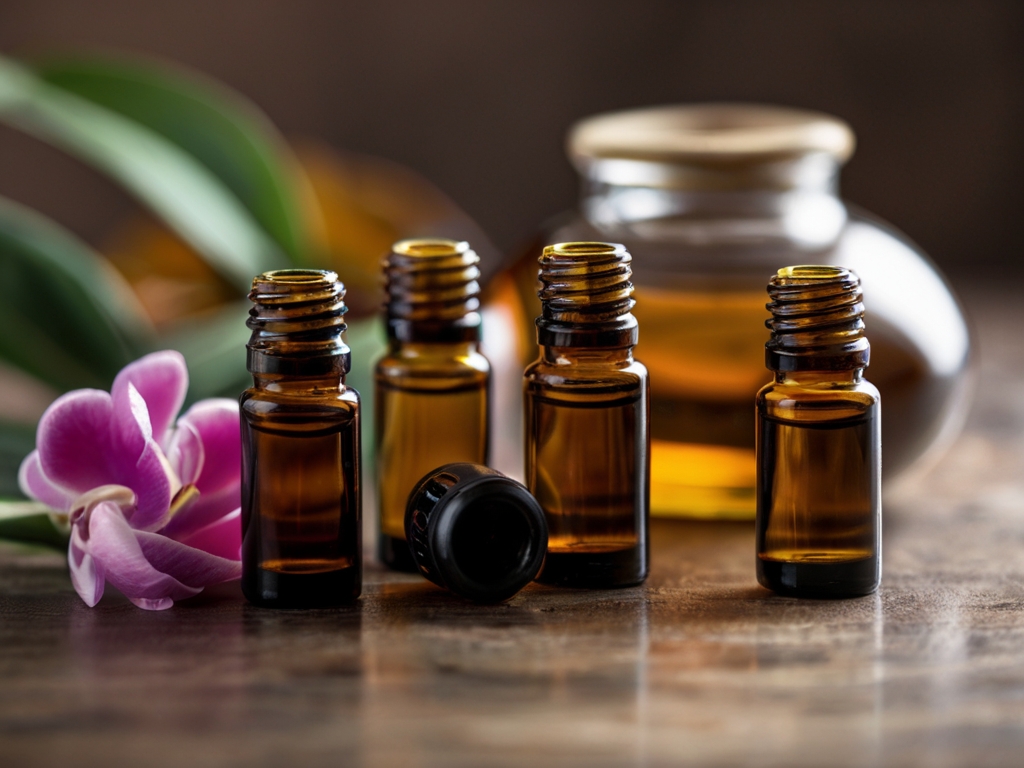Inflammation, a natural response of the body’s immune system to injury or infection, serves as a double-edged sword. While acute inflammation is crucial for the healing process, chronic inflammation can wreak havoc on our health, leading to various ailments ranging from arthritis to cardiovascular diseases. In the pursuit of holistic remedies, essential oils have emerged as potent allies in combating inflammation, offering a natural and effective approach to alleviate discomfort and promote overall well-being.
Derived from aromatic plants through distillation or extraction, essential oils for inflammation contain concentrated plant compounds renowned for their therapeutic properties. Their diverse chemical composition imbues them with anti-inflammatory, analgesic, and antioxidant attributes, making them invaluable assets in the realm of natural medicine. Let’s delve deeper into the science-backed benefits of essential oils in tackling inflammation across different domains of health.
What is Inflammation ?
Before exploring the efficacy of essential oils, it’s essential to grasp the underlying mechanisms of inflammation. Inflammation manifests as redness, swelling, pain, and heat at the site of injury or infection, orchestrated by a cascade of immune responses. While acute inflammation serves as the body’s defense mechanism to neutralize harmful stimuli and initiate the healing process, chronic inflammation ensues when the immune system remains in a state of hyperactivity, leading to tissue damage and systemic disorders.
Explore: Inflamed Eyes? Try Best Essential oils for inflammation of the eye
Harnessing Nature’s Pharmacy:
Nature has bestowed us with a treasure trove of botanical remedies, and essential oils stand out as potent anti-inflammatory agents. Here are some of the most notable essential oils renowned for their efficacy in combating inflammation:
- Lavender Oil: Widely cherished for its calming aroma, lavender oil harbors anti-inflammatory properties that soothe both the body and mind. Studies have shown that inhalation of lavender oil vapor can reduce inflammatory markers and alleviate symptoms of respiratory conditions such as bronchial asthma.
- Peppermint Oil: With its refreshing scent and cooling sensation, peppermint oil contains menthol, a potent compound with analgesic and anti-inflammatory effects. Applied topically or inhaled, peppermint oil offers relief from muscle pain, headaches, and digestive distress associated with inflammation.
- Frankincense Oil: Revered for centuries for its sacred aroma, frankincense oil possesses powerful anti-inflammatory and immunomodulatory properties. Its ability to inhibit pro-inflammatory molecules makes it a valuable ally in managing chronic inflammatory conditions like arthritis and inflammatory bowel diseases.
- Turmeric Oil: Derived from the golden spice revered in traditional medicine, turmeric oil boasts curcumin, a bioactive compound celebrated for its potent anti-inflammatory effects. Incorporating turmeric oil into skincare formulations or consuming it orally can mitigate inflammation and promote skin health while supporting joint function.
- Ginger Oil: Extracted from the rhizome of the ginger plant, ginger oil contains gingerol and other bioactive compounds renowned for their anti-inflammatory and antioxidant properties. Whether ingested in teas or applied topically, ginger oil alleviates pain and inflammation associated with osteoarthritis and muscle soreness.

Application and Considerations:
While essential oils offer promising therapeutic benefits, it’s crucial to exercise caution and employ them judiciously:
- Dilution: Essential oils are highly concentrated and potent, necessitating dilution with carrier oils like coconut or jojoba oil to prevent skin irritation.
- Patch Test: Before widespread application, perform a patch test to assess for allergic reactions or sensitivities.
- Quality Matters: Opt for high-quality, organic essential oils devoid of synthetic additives or contaminants to ensure safety and efficacy.
- Consultation: Individuals with underlying health conditions or pregnant/nursing women should consult with a healthcare professional before using essential oils.
Side Effects of Essential oils for inflammation:
While essential oils are celebrated for their therapeutic properties, it’s imperative to acknowledge that they may induce side effects in certain individuals, particularly when used improperly or in excessive amounts. Here are some potential side effects associated with essential oil usage:
- Skin Irritation: Undiluted essential oils can be highly potent and may cause skin irritation, redness, or allergic reactions, especially in individuals with sensitive skin. It’s crucial to perform a patch test and dilute essential oils with a suitable carrier oil before topical application.
- Respiratory Issues: Inhalation of concentrated essential oil vapors, particularly in enclosed spaces or for prolonged periods, may irritate the respiratory tract and exacerbate conditions such as asthma or allergies. Proper ventilation and moderation in aromatherapy practices are essential to minimize respiratory side effects.
- Phototoxicity: Certain citrus essential oils, such as bergamot, lemon, lime, and grapefruit, contain phototoxic compounds that can increase skin sensitivity to sunlight, leading to sunburn or skin discoloration. Avoid sun exposure after topical application of phototoxic essential oils or opt for steam-distilled versions that are less likely to cause photosensitivity.
- Gastrointestinal Distress: Ingestion of essential oils, either orally or by adding them to beverages or food, can trigger digestive issues such as nausea, vomiting, or diarrhea. Some essential oils are highly concentrated and may irritate the gastrointestinal mucosa, particularly in sensitive individuals.
- Hormonal Effects: Certain essential oils, notably those containing phytoestrogens such as clary sage or fennel, may exert hormonal effects and interfere with endocrine function, especially in individuals with hormone-sensitive conditions like breast cancer or endometriosis. Consultation with a healthcare professional is advised before using hormone-modulating essential oils.
- Drug Interactions: Essential oils can interact with medications, either by potentiating or inhibiting their effects, leading to unforeseen complications or reduced efficacy. Individuals taking medications should seek guidance from a healthcare provider to ensure compatibility with essential oil usage.
- Allergic Reactions: Despite being natural substances, essential oils contain complex mixtures of compounds that may trigger allergic reactions in susceptible individuals. Symptoms of allergic reactions may include skin rashes, itching, swelling, or respiratory distress and require immediate medical attention.
- Central Nervous System Effects: Some essential oils, particularly those with high levels of menthol (e.g., peppermint oil) or camphor, can exert potent effects on the central nervous system, leading to symptoms such as dizziness, headaches, or seizures, especially when ingested in large quantities.
- Child and Pet Safety: Essential oils should be used with caution around children and pets, as they may be more susceptible to adverse reactions due to their smaller size and heightened sensitivity. Certain essential oils, such as tea tree oil and eucalyptus oil, can be toxic if ingested or applied undiluted to the skin of young children or pets.
- Quality Concerns: Poor-quality or adulterated essential oils may contain contaminants, synthetic additives, or adulterants that can cause adverse reactions or diminish therapeutic efficacy. It’s essential to source essential oils from reputable suppliers that adhere to stringent quality standards and provide transparent information about sourcing and production practices.
Conclusion:
In the era of modern medicine, the resurgence of traditional healing modalities underscores our reverence for nature’s wisdom. Essential oils, with their myriad therapeutic benefits, offer a holistic approach to mitigating inflammation and restoring balance to the body. From aromatherapy to topical applications, the versatility of essential oils transcends conventional boundaries, ushering in a new era of integrative wellness. Embracing the healing power of essential oils heralds a harmonious union between science and nature, empowering individuals to embark on a journey of holistic health and vitality.
FAQs
Can essential oils be ingested?
While some essential oils are considered safe for oral ingestion when used in small amounts and under the guidance of a qualified practitioner, not all essential oils are suitable for internal use. Ingesting essential oils can pose risks, including irritation of the digestive tract and interactions with medications. It’s crucial to research each oil thoroughly and consult with a healthcare professional before ingesting any essential oils.
2.How should essential oils be stored?
Essential oils should be stored in dark-colored glass bottles away from direct sunlight, heat, and moisture, as exposure to light and air can degrade their quality over time. It’s also essential to keep them out of reach of children and pets, as some essential oils can be toxic if ingested.
3.Where can I purchase high-quality essential oils?
High-quality essential oils can be purchased from reputable suppliers, including specialty stores, online retailers, and certified aromatherapists. Look for oils that are 100% pure, organic, and free from additives or contaminants. It’s also advisable to research the company’s sourcing and production practices to ensure the quality and authenticity of the oils.
Are essential oils safe for use during pregnancy and breastfeeding?
While some essential oils are considered safe for use during pregnancy and breastfeeding, many others should be avoided due to their potential effects on hormonal balance or fetal development. Pregnant and breastfeeding individuals should consult with a qualified healthcare professional or aromatherapist before using essential oils to ensure safety for both mother and baby.
Can essential oils help with specific health conditions?
Essential oils are often used as complementary therapies to support the management of various health conditions, including anxiety, depression, insomnia, migraines, digestive disorders, and skin ailments. While research supports the efficacy of certain essential oils for specific conditions, individual responses may vary, and it’s essential to use them as part of a holistic treatment plan under the guidance of a healthcare provider.

